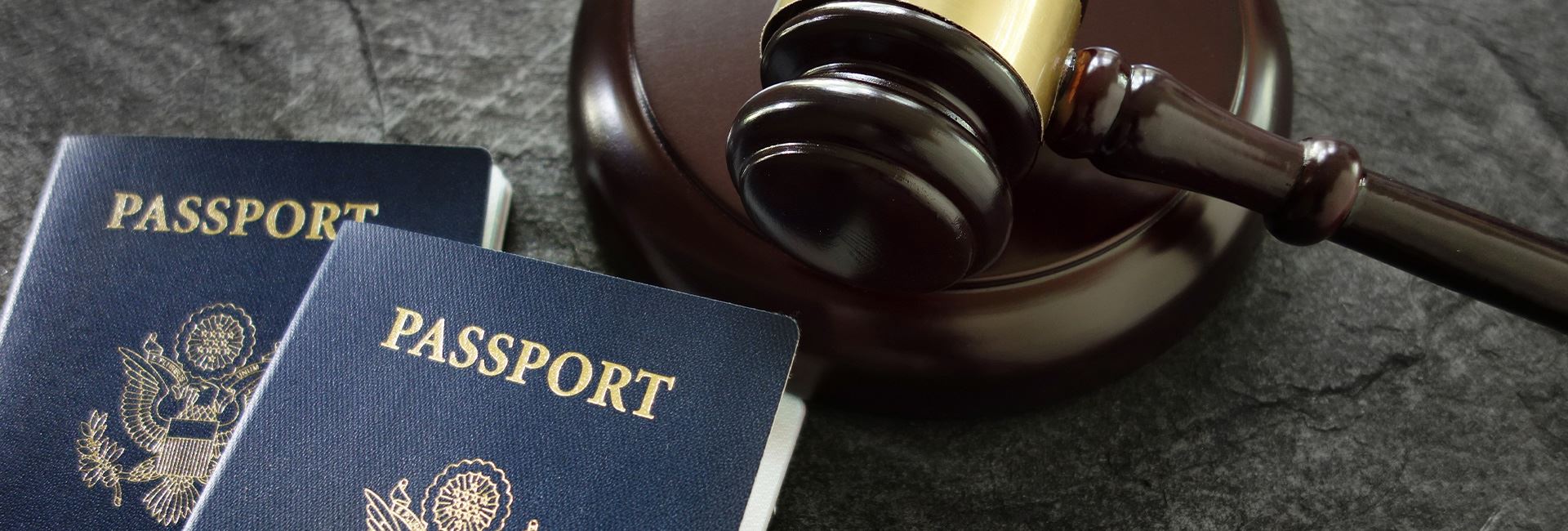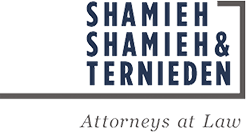
The Undivided Attention You Deserve
H-1B Visa Attorney in San Francisco
Comprehensive Support for H-1B Specialty Occupation Visa Applicants
If you are an international worker and have been offered a position in a specialty occupation in the United States, you may be eligible for an H-1B visa. The H-1B visa is a nonimmigrant visa that allows U.S. employers to temporarily hire foreign workers in specialty occupations.
Our San Francisco H-1B visa attorney can help you navigate the H1B visa application process. We have over 20 years of experience practicing immigration law and can assist you with the preparation and filing of your H1B application. We can also represent you before United States Citizenship and Immigration Services (USCIS) and the Department of Homeland Security (DHS) to ensure that your application is processed promptly.
In addition to offering guidance through the H-1B application process, we provide valuable insights into maintaining compliance with its requirements. Employers must adhere to specific labor conditions, and workers must fulfill their roles as outlined in their petitions. Our role is to ensure that both parties understand their obligations, minimizing the risk of application denial or future complications. By choosing us, you benefit from a dedicated legal team committed to your immigration journey.
Contact us online or call (415) 300-2144 to speak with a San Francisco H-1B specialty occupation visa attorney. Our services are available in Arabic, English, Spanish, Portuguese, and Cantonese.
What Are the Eligibility Criteria for H-1B Visa Applicants?
The H-1B visa is available to foreign workers who have been offered a position in a specialty occupation. A specialty occupation is a position that requires a bachelor's degree or its equivalent in education, training, or experience. The position must also be in a field that is typically classified as a profession.
Examples of specialty occupations include architecture, engineering, computer science, mathematics, medicine, and college teaching. The specialty occupation must also require a minimum of a bachelor's degree or its equivalent. An H-1B visa applicant must have a bachelor's degree or the equivalent in education, training, or experience.
The H-1B visa is limited to 65,000 visas per fiscal year, with an additional 20,000 available to individuals who have earned a master's degree or higher from a U.S. institution. The H-1B visa is valid for up to three years and can be renewed once for an additional three years. An H-1B visa can be converted to a green card if the worker has a permanent employment offer that meets certain eligibility criteria.
The H-1B visa is only available to foreign workers who are sponsored by a U.S. employer. The employer must first file a Labor Condition Application (LCA) with the U.S. Department of Labor (DOL). The LCA is a document that attests that the employer will abide by the H-1B visa regulations.
The LCA is only valid for 30 days. This means that the H1B visa application must be filed within this timeframe.
The sponsoring employer must also file an H-1B petition with USCIS. The H-1B petition must include a copy of the LCA, documentation of the specialty occupation, documentation that the worker has a bachelor's degree or equivalent, and evidence that the worker will be paid the prevailing wage. The H-1B petition must be accompanied by the filing fee.
Another vital aspect of eligibility is demonstrating that the employer can meet the financial obligations set forth in the H-1B requirements. They must show they can pay the predetermined wage for the worker's labor without compromising existing employees' wages or work conditions. The relevance of these financial assurances is critical to the approval of an H1B petition, as it solidifies the employer's commitment to fulfilling legal and ethical standards in hiring foreign workers.
Transferring H-1B Workers Already in the U.S.
If the worker is already in the United States, the sponsoring employer must file a request to transfer the H-1B visa. The worker must also file an application to change their status to that of a lawful permanent resident. This application must be accompanied by an additional filing fee. The worker must wait until their priority date is current before they can proceed with the green card application.
For those considering transferring their H-1B status, understanding the timing and scheduling of these applications is crucial. We can guide you through the intricacies of ensuring all paperwork is complete and submitted correctly to prevent unnecessary delays. By aligning your timing with current immigration timelines and procedures, you maximize your chance of a smooth transition from one employer to another without jeopardizing your status.
Applying for H-1B Workers Outside of the U.S.
If the worker is outside of the United States, the sponsoring employer must file a consular processing application. The worker must go through consular processing and return to the United States before they can proceed with their application to change their status to that of a lawful permanent resident.
Consular processing involves dealing with multiple governmental agencies and often varies in procedural details depending on the applicant's home country. Differences in administrative processes can affect the timelines and expectations applicants should have. Our legal team is adept at managing these nuances, providing guidance for individuals on obtaining the necessary documentation, and preparing for consulate interviews, which are critical to gaining entry approval into the U.S. under H-1B status.
What Are The Benefits of Hiring an HB Visa Lawyer?
Navigating the H-1B visa application process can be a daunting and confusing task. The application must be carefully prepared and filed, and there is a great deal of uncertainty regarding when the worker will be eligible to apply for lawful permanent residence. An experienced immigration attorney can help you avoid common mistakes and ensure that your application is processed as quickly as possible.
In addition to mitigating the risks of application errors, a dedicated attorney advocates for your interests throughout the entire process, providing strategic advice tailored to your specific situation. Their understanding of current immigration policies and potential future changes allows them to offer pragmatic solutions that cater to short-term and long-term goals. Choosing the right legal partner means you gain a trusted advisor committed to navigating every hurdle in the H-1B process with you.
Local Considerations & Resources for H-1B Visa Applicants in San Francisco
San Francisco's dynamic tech landscape attracts numerous H-1B visa holders, mainly due to its abundance of technology and engineering opportunities. Companies like Google, Salesforce, and Uber regularly sponsor skilled foreign workers to tap into global expertise. Understanding the local job market's demands can be a decisive factor in securing your H-1B visa. Our legal services offer tailored advice, considering regional employment trends and the economic climate, to better position clients for success.
Additionally, navigating the city’s housing market and cost of living is an integral part of the relocation process for H-1B applicants. San Francisco's rental prices can be among the highest in the nation, which makes pre-arrival planning essential. We provide resources and guidance to help ease this transition, ensuring you are prepared for both professional and personal adjustments upon arrival in the city. This holistic approach underscores our commitment to servicing your immediate and ongoing needs as you embark on your journey toward securing an H1B visa.
For skilled guidance, talk to an employment-based visa lawyer at Law Offices of Shamieh, Shamieh & Ternieden. Contact us online or call (415) 300-2144 for a consultation.
FAQs About H1B Visas
What Is the Process for Switching Employers on an H-1B Visa?
Switching employers while holding an H-1B visa involves several steps and requires careful attention to detail to ensure compliance with U.S. immigration laws. Initially, your new employer must file a new H-1B petition and get approval from the USCIS. This petition should include evidence of your qualifications, the details of your offered employment, and a certified Labor Condition Application (LCA). Your relocation must be timed meticulously to avoid gaps in employment, which could affect your H-1B status. Legal guidance is vital during this transition to ensure all documentation is properly handled and submitted, safeguarding your legal work status during the switch.
Are There Any Limitations on H-1B Visa Holders Engaging in Multiple Jobs?
H-1B visa holders are generally restricted to employment with the sponsoring employer and cannot legally work multiple jobs unless each position is authorized on a separate H-1B petition. If you wish to engage in concurrent employment with another employer, they must file a separate H-1B petition, and this must be approved before you can commence work. It's crucial to consult with a legal advisor to understand the implications and ensure compliance with immigration laws regarding dual employment. Missteps could jeopardize your visa status, making professional guidance invaluable in these situations.
What Happens if My H-1B Visa Application Is Denied?
If your H-1B visa application is denied, it's essential to understand the reasons behind the USCIS decision, as appeals or reapplications might be possible, depending on the case. Common reasons for denial can include issues with the employer's ability to pay the wage, the job not qualifying as a specialty occupation, or concerns with your qualifications. It is often advisable to consult with an immigration attorney to evaluate the potential remedies or strategies moving forward. They can offer assistance in gathering additional evidence or re-filing the petition correctly to enhance your chances of approval in subsequent attempts.
How Does the H-1B Visa Lottery System Work?
The H-1B visa program is capped with an annual limit of 65,000 visas, with an additional 20,000 visas for individuals with advanced degrees from U.S. institutions. Due to high demand, a lottery system is used to randomly select petitions for processing each fiscal year. Employers file petitions during the designated application window, typically starting in March. The lottery system ensures fairness but also introduces uncertainty into the process. Consulting with a legal professional can help prepare your application to increase your opportunity for selection should the demand exceed the supply each year.
Can My Spouse or Children Accompany Me on an H-1B Visa?
Spouses and unmarried children under the age of 21 are eligible to accompany an H-1B visa holder to the U.S. under an H-4 visa status. While on H-4 status, your dependents can legally reside in the U.S. and may pursue some types of education. However, their ability to work is limited and typically requires additional steps, such as obtaining a separate work authorization. Navigating family immigration can be complex, so it's advisable to coordinate with an attorney to ensure all applications are handled correctly and timely, allowing your family to transition smoothly without legal complications.
Contact us online or call (415) 300-2144 to speak with a San Francisco H1B visa lawyer.
-
Attentive Service
-
Award-Winning Attorneys
-
Multilingual Firm
-
Thousands of Clients Helped
-
30 Years of Experience

Let's Get Together
All consultations are 100% Confidential. Please note that we require a consultation fee. Complete our form below or call us at (415) 300-2144. Or Schedule An Appointment.

